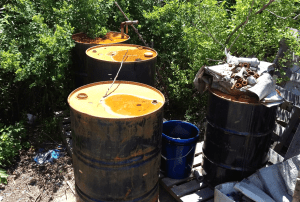Almost every business or institution generates hazardous waste. The hard part is determining which materials are subject to hazardous waste regulations and which materials are not. Different materials have different reporting thresholds and different states have different reporting limits. Regulations are in a constant state of change and different substances may fall under multiple sets of regulations.
Our environmental professionals utilize a three-step compliance process:
- Identify the hazardous wastes generated
- Determine the regulatory requirements and exemptions that apply to each type of hazardous waste and
- Implement an efficient compliance program
Spill reporting is not always an easy judgment to make. For example, at least four laws and four sets of regulations govern whether an oil spill must be reported. Do you call your state environmental agency or the National Response Center (NRC) to report a spill?
Releases of certain hazardous substances to air or land must be reported to the NRC under CERCLA if the amount released exceeds a threshold amount in a 24-hour period. In contrast, some state regulations may have lower threshold amounts for some hazardous substances and there may be no time limit in the calculation of the amount released.
Despite the amount of complexity and confusion in the regulations, the penalties for failing to report a spill are severe–potentially as high as $25,000 for one incident involving petroleum.
Our staff is always on call to assist you in deciding whether you have to report a spill and what to do to mitigate the impact.


